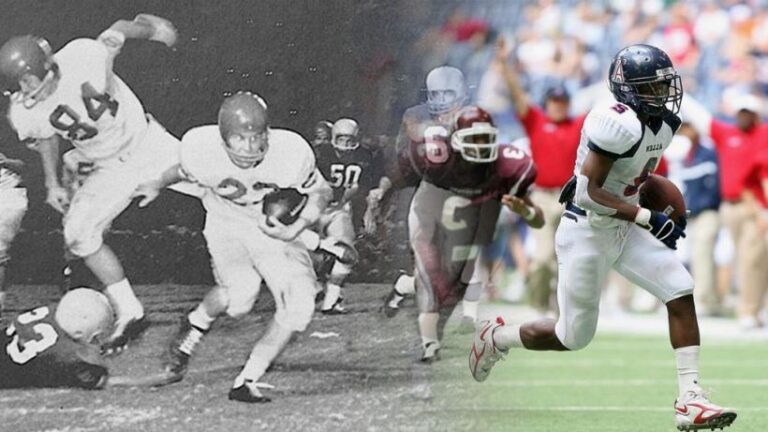Sports betting has undergone a massive transformation over the past decade. Prior to legalization rolling out state by state (currently legal in 25 states), the world of sports gambling existed in a unique legal gray area.
The future is looking like widespread legalization and regulation is inevitable. When that day comes where it’s legal on a federal level, it will be more accessible to sports fans but will lose some of the charm that has made it a thriving subculture over the years.
In this article, I’ll go over 10 interesting facts about the history of sports betting.
1 – It All Started with Horses
Before point spreads and parlays, sports betting gained popularity when spectators (and European royalty) began gambling on horse racing in the 1600s. Although gambling had been around for thousands of years, it was primarily kept out of athletic contests for fear of corrupting the competition.
Note:
Rich people and royals from around the world raised horses for racing and traveled great distances to compete. Theses contests involved bets on the races, with some of the sums at staggering amounts because of how much money the contestants had at their disposal.
At the turn of the 20th century, sports betting started to be offered on more traditional sports. At a time where there was no regulation at all, this did lead to corruption as had been feared in the past.
2 – The Origin of the Point Spread
Looking to impress your betting friends next time you’re hanging out? Tell them the story of the origin of the point spread.
It’s hard to imagine sports betting without it (especially football), but the point spread was not always there to make every game on the schedule competitive. However, in the 1930s, Charles K. McNeil began utilizing the point spread in a move that should undoubtedly earn him a spot in the football Hall of Fame.
An intelligent man with a master’s degree from the prestigious University of Chicago, McNeil began running a bookmaking business in the Windy City during the 1940s. As his operation grew as a result of the popularity of the point spread, partners asked to come on board in the 1950s. In the end, he decided not to continue growing his sportsbook as it was still illegal, and he figured that the larger it got, the more problems he would encounter.
Though he is relatively unknown by most sports bettors today, there’s no doubt that Charles McNeil changed sports betting forever with his invention. The next time you find yourself intently watching a game despite a massive scoring differential to see if the underdog can cover, you’ll know who to thank.
3 – Vegas Leads the Way (Of Course)
Las Vegas has long been associated with gambling of all types, but in 1949 they added a new draw to its already-thriving casino industry: sportsbooks. This was roughly 15 years after the state had passed legislation legalizing most forms of gambling, but Vegas was looking for a boost after dropping tourism numbers began hurting the local economy.

It didn’t take long before the federal government got in on the action (pun intended). In 1951, a 10% federal tax was put on all sports bets. Unsurprisingly, this caused many sportsbooks to close as they just couldn’t remain profitable with their already thin margins. It took more than 20 years before the government reduced the tax to 2%, which caused a sports betting renaissance in Sin City (and a new influx of tax dollars for the fed).
4 – PASPA Shuts It Down
Throughout most of the 20th century, organized crime was responsible for most of the bookmaking that took place outside of Las Vegas. Though the government had passed the Federal Wire Act in 1961, it did not have quite the impact that was expected. Fast forward another 30 years, and legislators came down hard on sports gambling.
The Professional and Amateur Sports Protection Act (PASPA) was passed in 1992. And in clear terms, it answered the question of whether or not sports gambling could take place legally—it could not. Interestingly, NFL commissioner Paul Tagliabue was on board with the decision, which is hard to imagine as the NFL supports a number of sports betting companies today.
5 – UIGEA Comes Into Play
Yes, government legislation does seem to enjoy the format of long acronyms. Another anti-sports-gambling bill was passed by congress in 2006—the Unlawful Internet Gambling Enforcement Act (UIGEA).
Essentially, this made it illegal to bet, pay, or receive payment via online money transmission methods in relation to sports gambling. It forced several sportsbooks that were operating offshore to stop serving US-based clientele. This resulted in an event known as “Black Friday” in the poker world.
Note:
In terms of its impact on the sports world, the most infamous “victim” of UIGEA was NBA referee Tim Donaghy. In 2007, he pled guilty to felony charges for his connection to a mob-related NBA betting scheme. He admitted to officiating in such a way to improve the odds of certain outcomes (specifically game totals) by calling fouls late in the game to impact the scoring.
To this day, Donaghy remains one of the most notable sports betting scandals in the past half-century.
6 – Delaware Gets the Ball Rolling
As casinos began to grow their businesses in the Northeast, especially Pennsylvania and Maryland (which created competition for New Jersey casinos), Delaware decided it was time to spring sports betting back into the picture—kind of.

The governor of Delaware at the time, Jack Markell, voted in 2009 to allow sports betting in the form of NFL parlay wagering. Under the new law, you could make a 3-to-12-team parlay bet on NFL games, but could not make a single-game wager, which obviously has a much better chance in resulting in actually winning money. Makes sense, right? (No…)
This event was significant because it began a process of repealing some of the most restrictive sports betting laws, which would be impactful in the coming years.
7 – New Jersey Makes a Push
As casinos began losing business, New Jersey recognized the need to make a move that would draw in a new group of gamblers. In 2014, the state began its push to legalize sports betting by passing a piece of legislation that repealed the state’s laws prohibiting sports betting, but without necessarily saying it by name.
Note:
Unfortunately, the state’s clever plan was shot down by the court. Notably, it was around this time that NBA commissioner Adam Silver expressed his evolving views on sports betting as he recognized the potential it could have for growing his sport. This was not insignificant in the eyes of US lawmakers.
Fast forward to 2016 and a Supreme Court Case later, and in 2018 congress eliminated PASPA, marking one of the biggest events in the world of legalized sports betting in the past half-century. Sports gamblers have New Jersey to thank for their continued efforts.
8 – Legalization Today
As of this writing, the world of sports gambling is amid a legalization domino effect. It seems like on a near-monthly basis new states are announcing that sports betting platforms, most notably FanDuel, can operate legally within state borders.
The jury is still out on legalization at a federal level, but many in the industry believe it’s only a matter of time before the US laws are overhauled.
Conclusion
Sports gambling has undergone as much transformation over the past 20 years as any industry in America, and today, it’s mainstream big business. It’s hard to say what the multibillion-dollar market will look like in the coming years, but it’s expected to be ubiquitous throughout the world of sports.
Perhaps sports betting is yet another example of the philosophy that the best way to keep an underground operation from becoming a real problem is to legalize and regulate it (and tax it, of course). Only time will tell where things end up, but sports betting continues to grow in popularity each year.











